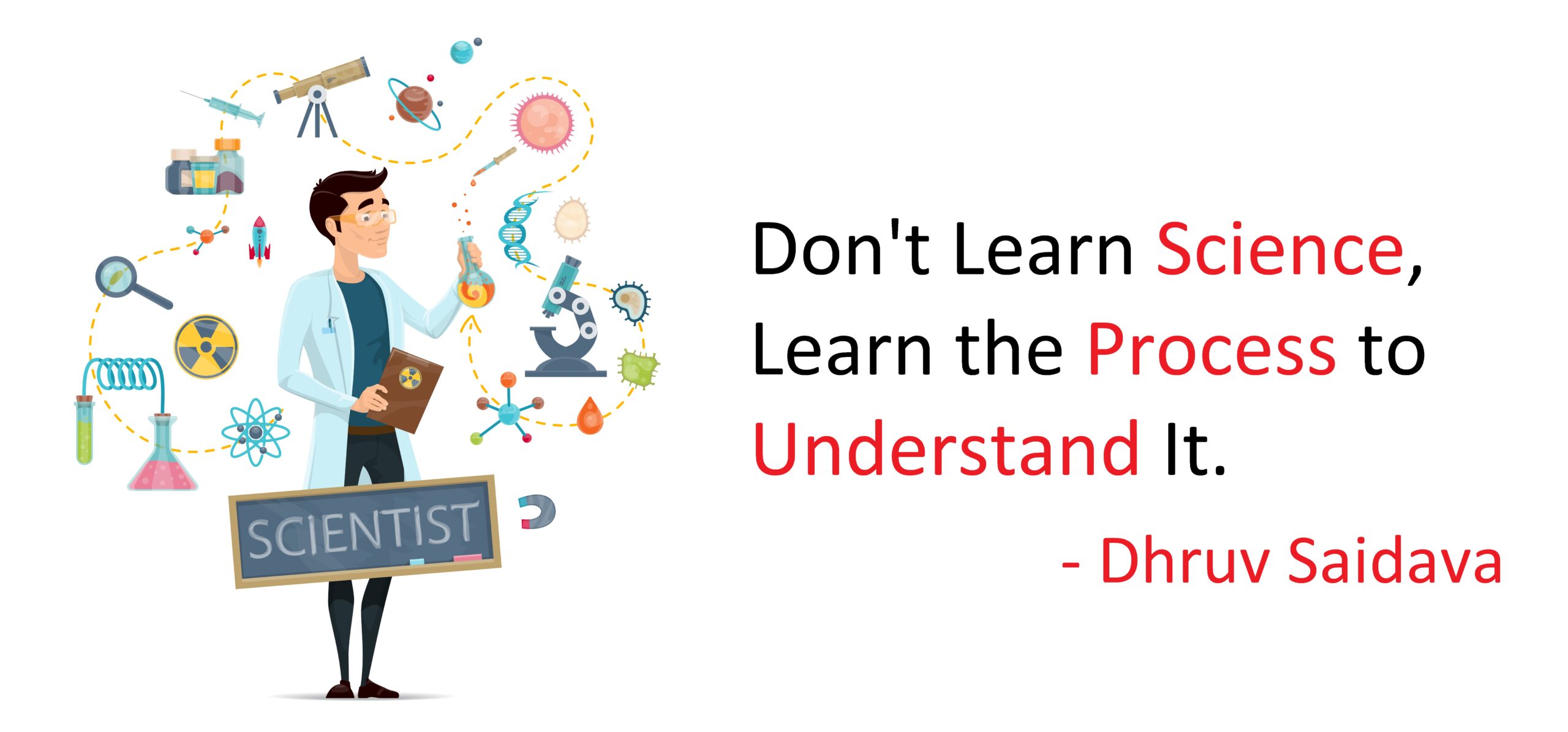
In a world obsessed with learning facts and figures, we often forget the most important part of education: the process. Science, at its core, isn’t just a set of formulas or laws to be memorized. It is a process of exploration, curiosity, and discovery. And that’s the true essence we need to focus on.
The Power of Process
When you focus on understanding how something works, rather than just what works, you unlock the ability to learn anything. Science is not just about Newton’s Laws or Einstein’s theories. It’s about asking questions like:
- Why does this happen?
- How can I test it?
- What if I change something?
The moment you start thinking this way, you are practicing the process of science. This approach cultivates deeper learning, curiosity, and a mindset that seeks answers through observation and experimentation.
Learning How to Learn
Instead of pushing students or children to memorize facts, we should encourage them to question the world around them. When they learn how to ask questions and seek answers, science becomes fun and engaging. They move from passive learning to active discovery.
Let’s take a few more examples to see this process in action.
Example 1: Understanding Gravity
Most of us know that gravity is the force that pulls objects toward the Earth, but how do you feel that force?
Instead of saying, “Gravity pulls things down,” ask:
- Why don’t things float in the air?
- What happens if you drop different objects—does weight affect how fast they fall?
- How do astronauts experience gravity differently in space?
By experimenting with simple objects like a ball or a feather and watching how they fall, students begin to see gravity as an active force, not just a fact from a textbook. This helps them engage with the concept and understand how it shapes the world around them.
Example 2: Baking as Chemistry
Cooking is a great way to bring science to life. The next time you’re baking a cake, consider it a chemistry experiment.
Instead of just following the recipe, ask:
- Why does the cake rise when you put it in the oven?
- What happens if I forget the baking powder—how will the cake change?
- Why do certain ingredients like sugar and salt interact with each other differently?
Each step in the process is a lesson in chemical reactions. Through observation and curiosity, children (and even adults) can learn how heat, moisture, and ingredients combine to create new compounds—turning everyday kitchen work into an engaging scientific exploration.
Example 3: The Life Cycle of Plants
When learning about plants in biology, instead of memorizing the stages of a plant’s life cycle, encourage students to grow their own plants.
Ask them to explore:
- What happens if you change how much sunlight or water the plant gets?
- Why do some plants grow taller than others?
- How do seeds know when to sprout?
By growing and observing a plant’s growth over time, learners become connected to the process of photosynthesis, germination, and adaptation. They begin to think like scientists by questioning variables and drawing conclusions from real-life experiences.
Example 4: Sound Waves and Music
Take music as another example of science in everyday life. Rather than just talking about sound waves and frequencies, let students play with musical instruments.
Ask them:
- Why do different instruments make different sounds?
- How do you change the pitch of a note on a guitar or a flute?
- What causes sound to travel?
By experimenting with instruments, clapping, or even making a simple string telephone, they can begin to see how vibrations and sound waves work in the real world. The process of testing and experiencing these sound properties makes science more interactive and fun.
The World is Your Lab
Science isn’t confined to textbooks or classrooms. It’s in everything you do, from the patterns of leaves in a garden to the way the rain falls. When you shift the focus to the process of learning, you begin to see science everywhere.
For educators, this shift is crucial. Children naturally love to explore and ask “why”—we need to nurture that sense of wonder. When they learn the process, they aren’t just learning science—they’re learning how to think critically, problem-solve, and innovate.
Final Thoughts
Don’t learn science for the sake of passing exams or getting grades. Learn the process that teaches you how to understand science. When you do, you’ll find yourself not just learning science but falling in love with the journey of discovery.
Stay curious, keep questioning, and remember—it’s the process that truly makes you a scientist.
Post your comment